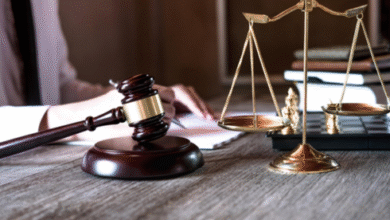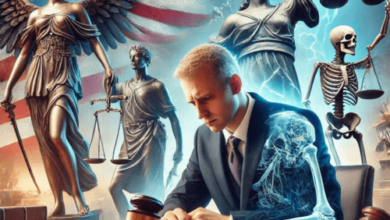
When Medicine Meets the Law: The Unseen Impact of Medical Experts in Legal Cases
It’s a moment no one ever wants to face. A loved one is harmed, or worse, after a hospital stay or routine procedure—and the question that keeps echoing is: Was this preventable?
Or maybe you’re on the other side—part of a healthcare team being sued for something that felt, in the moment, like the best choice under pressure. But now, you’re trying to prove your actions met professional standards. Whatever side of the courtroom you’re on, when medical issues become legal ones, the truth isn’t always easy to find.
That’s when you call in the experts. The ones who read between the vitals, decode the care, and help courts understand the why behind the what.
What Does a Medical Expert Actually Do?
You’ve seen them in legal dramas: someone in a white coat, calmly explaining a diagnosis to a jury. In real life, they’re often less dramatic—but way more vital.
Medical experts bring clinical experience into the courtroom. They help everyone from attorneys to juries understand whether the care in question followed accepted medical standards. They’re not just reciting facts—they’re interpreting them. And in cases where stakes are high and timelines are tangled, that interpretation is everything.
From evaluating whether a treatment was delayed, to assessing if a misdiagnosis was avoidable, these professionals put healthcare decisions under the microscope—and do it without bias.
Nevada’s Need for Precision: Licensed Medical Experts That Matter
In Nevada, where the legal system is seeing a rise in healthcare-related lawsuits—from cosmetic surgery mishaps in Las Vegas to delayed emergency care in rural counties—a Licensed medical expert NV is an invaluable asset.
These experts are board-certified physicians, often still practicing, who step in to clarify if a healthcare provider met their duty of care. They might be reviewing patient charts one day and giving deposition testimony the next. Their job isn’t to sway a jury with emotion—it’s to explain what reasonable, competent care looks like under Nevada law and medical guidelines.
And here’s the kicker: Nevada courts expect expert witnesses to be licensed in the state or have equivalent credentials. That means a licensed expert here isn’t just someone with a white coat—they’re someone who understands the local medical and legal landscape.
They’ve seen how hospital staffing levels in Reno affect decision-making. They know the time pressures in Las Vegas ERs. And when they testify, they bring that nuanced perspective with them.
Los Angeles: Where the Standard of Care Faces the Spotlight
Now, head west to Los Angeles, where the pace of legal and medical life is intense. It’s a city where cutting-edge medicine collides with high-profile litigation, and where the definition of “standard of care” is constantly being examined under a microscope.
That’s where a Medical standard of care expert Los Angeles, CA makes all the difference.
These experts are often called in early in the legal process—before any lawsuits are filed. They help determine whether a provider’s actions fell below acceptable medical standards. That might mean missing a diagnosis that any reasonable doctor should have caught. Or prescribing a treatment that did more harm than good.
But let’s be clear—it’s not about punishing doctors for tough calls. It’s about evaluating whether those calls made sense within the context of current medical knowledge, patient history, and institutional resources.
LA’s standard of care experts bring a deep understanding of California’s healthcare regulations and regional expectations. Many of them have worked in hospitals like Cedars-Sinai or UCLA Medical Center. When they speak, they carry the authority of not just knowing the rulebook—but having played by it themselves.
San Diego’s Voice of Reason: Testifying Medical Experts with Real Impact
In San Diego, the cases may be less flashy, but they’re no less important. A botched surgery at a community hospital. A delayed response in a long-term care facility. A medication error in a busy clinic.
These are the kinds of cases that depend heavily on the clear, composed input of a Testifying medical expert San Diego, CA.
These experts are often asked to appear in court and explain their findings. And that’s not always easy. They may be grilled by opposing counsel. Their words may influence the entire case. But the best ones stay calm, focused, and clear—even when the questions get tough.
They’re not there to take sides. They’re there to give the court an anchor. Something solid to build on when everything else feels like a swirl of legal jargon and clinical chaos.
And here’s one bolded takeaway for anyone navigating these waters: Whether you’re relying on a Licensed medical expert NV, Medical standard of care expert Los Angeles, CA, Testifying medical expert San Diego, CA, what you’re really asking for is someone who can turn medicine into meaning—and help justice find its way through complexity.
It’s Not Just About Testimony—It’s About Trust
What sets a great medical expert apart isn’t just knowledge. It’s credibility. It’s the ability to say, “This care met the standard,” or, “This was a serious deviation,” and have everyone in the room believe them.
That kind of trust is earned through decades of practice, a spotless record, and the ability to explain complex medical situations in plain language.
And trust me—when a jury hears an honest, level-headed medical expert break it down like they would for a patient in an exam room? It sticks.
Final Thoughts: Where Medicine and Justice Intersect
Legal cases involving healthcare are tough. They’re filled with emotion, technical detail, and lives that have been turned upside down. But they’re also moments where the truth matters more than anything.
Medical expert witnesses aren’t just part of the process—they are the compass that helps everyone in the room navigate the storm. From Nevada’s high-pressure cases to Los Angeles’s legal spotlight to San Diego’s patient-centered disputes, these professionals play a quietly powerful role in getting it right.
Because at the end of the day, justice doesn’t need a diagnosis. It needs someone who can explain one.



